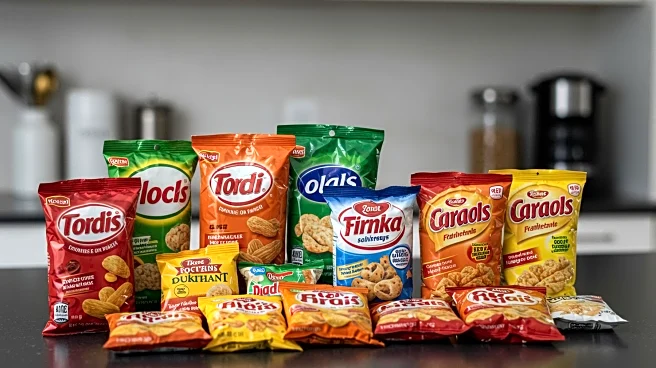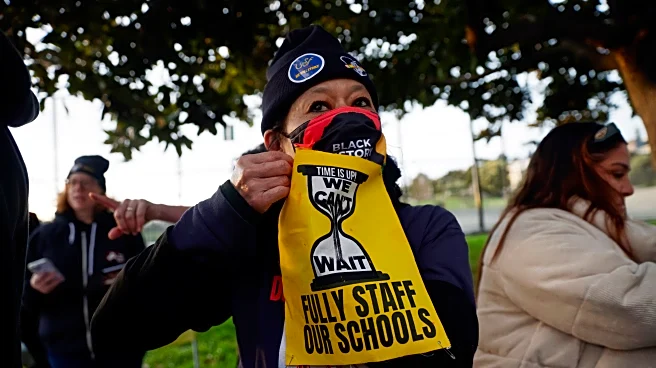What's Happening?
Major food companies like Mondelēz International, PepsiCo, General Mills, J.M. Smucker, and The Campbell’s Company are experiencing sluggish sales in North America as consumers opt for cheaper store labels or cut snacks from their shopping lists. In response, these companies are leveraging celebrity partnerships to reignite interest in their products. Mondelēz, for instance, is collaborating with Bad Bunny to promote Ritz crackers, aiming to appeal to the Latino demographic. Similarly, Oreo has partnered with Selena Gomez to create a horchata-inspired cookie, following successful collaborations with other celebrities like Lady Gaga and Post Malone. These partnerships are designed to attract Gen Z consumers and justify higher prices by offering unique, celebrity-endorsed flavors.
Why It's Important?
The decline in snack sales reflects broader economic challenges, as consumers tighten their budgets and prioritize essential items. By engaging celebrities, food companies hope to maintain brand relevance and encourage discretionary spending. This strategy not only targets specific demographics but also aims to create a crossover appeal between popular culture and consumer goods. Successful collaborations can lead to increased brand awareness and sales, helping companies navigate the competitive market and economic uncertainties. The focus on celebrity partnerships highlights the importance of innovative marketing in sustaining consumer interest and driving sales.
What's Next?
Food companies are likely to continue exploring celebrity collaborations as a means to boost sales and maintain consumer interest. As economic pressures persist, these partnerships may become more frequent, with companies investing in limited edition releases and marketing campaigns to keep their products in shopping carts. The effectiveness of these strategies will depend on the ability to resonate with consumers and offer value beyond traditional branding. Companies may also explore new flavors and packaging options to appeal to cost-conscious consumers, while leveraging the star power of celebrities to enhance product appeal.
Beyond the Headlines
The reliance on celebrity endorsements raises questions about the long-term sustainability of such marketing strategies. While they can provide short-term boosts in sales, companies must balance these efforts with broader initiatives to address consumer concerns about pricing and value. Additionally, the focus on celebrity partnerships may influence cultural perceptions of snacking, potentially shifting consumer preferences and expectations. As companies navigate these dynamics, they must consider the ethical implications of marketing strategies that prioritize entertainment over nutritional value.











